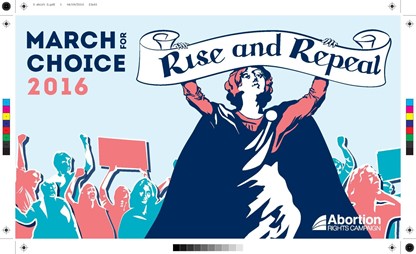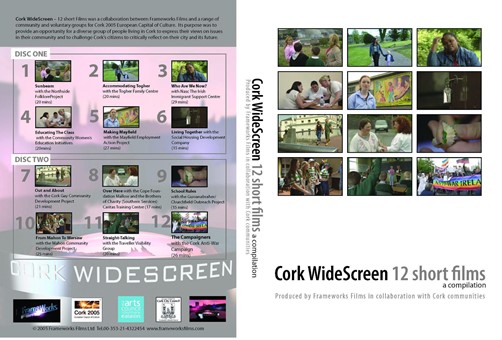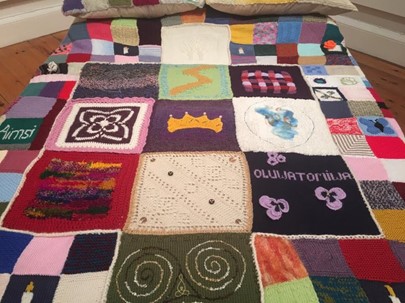Dr Deborah Thorpe is Education and Outreach Manager for the Digital Repository of Ireland
This autumn, the Digital Repository of Ireland (DRI) held an online introductory training programme in digital preservation for our members, with a particular focus on the training and community-building needs of community archivists. This course has been helping with breaking down barriers to digital preservation, by making topics such as appraising your digital collections for preservation, data protection, and metadata preparation understandable, relatable and accessible to all. ‘Understandable’, because we recognise that every individual who attends DRI training has a different level of existing knowledge of digital preservation processes; ‘relatable’, because sometimes it can be difficult to identify how the intricacies of topics such as GDPR or anonymisation relate to a particular digital collection; and ‘accessible’, because many community archivists are volunteers who do not have expanses of time or resources to spend on either undertaking training or preparing their collections for digital preservation.
Our training programme, ‘Digital Preservation for Community Archives’, asked participants to dedicate just one hour a week to attending sessions, with a small amount of preparatory work in between. We built in lots of time for discussion, in addition to providing a number of video lectures (now openly available on our Vimeo account). We aimed to create an opportunity for our members to meet regularly over an 8-week period; get to know one another; discuss their diverse collections; and ingest a small collection into DRI. These collections ranged from community-made films, to religious archives, to digital records of the 2018 campaign to Repeal the Eighth Amendment to the Irish Constitution.
Rather than explain any more of the rationale behind this training programme, I invited several of the participants to give us their own perspectives. Clare Lanigan is the Digital Archivist and Coordinator on DRI’s Wellcome-funded project Digital Preservation of Reproductive Health Resources: Archiving the 8th project and participated in the programme both as a DRI trainer, and in collaboration with the partners on this project. Emma Bowell joined us from Cork Community Media Hub, a social enterprise in Cork City that provides services for the community in filmmaking, media production, and training. Martina Hynan is an interdisciplinary artist, curator and PhD researcher and came to the programme as part of the birth activist group, The Elephant Collective. Emma and Martina are both previous recipients of the DRI Community Archive Scheme.
Deborah Thorpe: Clare, you brought a number of community archiving groups to the programme as part of ‘Digital Preservation of Reproductive Health Resources: Archiving the 8th' (Archiving Reproductive Health). What types of collections will you be ingesting over the 8 weeks?
Clare Lanigan: The Archiving Reproductive Health project encompasses a wonderful range of objects, covering the recent history of reproductive rights activism in Ireland.
The referendum campaign produced a wealth of digital objects from many different organisations. Those organisations that are stakeholders in the Archiving Reproductive Health project were no exception, producing a wide range of objects, including (but not limited to) PDFs of event posters, text files of submissions to government committees, photographs of rallies and marches, and graphic files of unique branding assets used for organisations and events. For the DRI Training, we focused on public-facing objects - one example being objects related to the ‘March for Choice’; organised by the Abortion Rights Campaign (ARC) annually since 2013. Myself and the other volunteers from ARC have settled on around 15-20 digital images of posters, flyers and ephemera associated with three of these marches. Rights to these objects lie with ARC, and DRI are publishing them under an open licence.

Design proof for 2016 March for Choice merchandise, with the ‘Rise and Repeal’ logo
DT: Emma you are representing Cork Community Media Hub at our training sessions. Does digitally-preserving video material present any particular challenges?
Emma Bowell: The main challenge for us has been figuring out the best file format to use when digitally preserving video content when the technology is ever changing. When researching this area there also seemed to be very little by way of international standards and there is a wide variance in what different groups and organisations seem to use. That is where we have found it invaluable to link in with an organisation like the DRI, who are very helpful with advice about what to use. The main advice they have given us is to always preserve the highest quality possible.
The other challenge would be preserving material from older video formats where the machines required to play the videos as part of the transfer process are becoming obsolete. Luckily we have also built up quite a collection of these machines within our organisation but they will not last forever so we want to try and ensure that we can preserve as much as possible while we still can.

DVD cover for the Cork WideScreen project, Cork Community Media Hub
DT: Martina, can you tell me a bit about the organisation that you represent, ‘The Elephant Collective’?
Martina Hynan: The Elephant Collective is made up of birth educators, midwives, midwifery students, artists and community activists. The group was determined to raise public awareness of the need for new legislation and lobby local and national public representatives.
Before 2019, the families of women who died while in the care of Ireland’s maternity services had to fight to secure an inquest to learn of the circumstances surrounding her death. Up to this time, investigations into maternal deaths were not mandatory; indeed there might not even be a robust institutional inquiry, let alone thorough public scrutiny. Obtaining a legal inquiry involved a complex and distressing process, which obliged families at a tragic time to persuade the Coroner’s Office to review the case. Granting an inquest into a mother’s death often took many years. Most families could not afford a solicitor, and the majority were unaware that an inquest in the case of a maternal death was not automatic. It was as though maternal deaths did not exist in the eyes of the law. This situation needed to change.
The collective began by inviting people to knit squares for a commemorative quilt to remember the eight women who had died in our maternity services between 2007 and 2012. All of these maternal deaths were ‘medical misadventure’. The quilt honours these eight women who died and also those whose names we do not know because there were no mandatory inquests. In November 2015, the multimedia exhibition, Picking Up the Threads: Remaking the Fabric of Care was launched in Dublin in November 2015. At that time it comprised of the knitted quilt, painted portraits by me of the eight women who had inspired the campaign and the documentary, Picking Up the Threads by Anne-Mare Green with details from each of the eight inquests.

Commemorative quilt to remember the eight women who had died in Irish maternity services between 2007 and 2012. The Elephant Collective
In July 2019, the Coroners (Amendment) Act was signed into law by the President, a significant landmark in the history of birth in Ireland, which means that a coroner’s inquest into a maternal death is a legal requirement for the first time. Accounts of why women die in our maternity services will now be in the public domain. This has been a hard-won battle from a committed group of community activists working tirelessly to see this legislation through.
DT: Thank you, Martina, for that overview of the crucial work of your organisation. Can you tell me about The Elephant Collective’s collections, and why it’s important to digitally preserve and share them?
MH: The Elephant Collective archive includes the multi-media exhibition which comprises a knitted quilt, painted portraits, a documentary and many artworks (mainly knitted items) contributed to the exhibition by individuals and community groups from around the country. The archive also includes photographs, posters, information leaflets, catalogues, a play, PDFs, video and audio interviews with national and local broadcasting agencies, press articles, email correspondence, letters to local and national politicians, and PQs (parliamentary questions) to the Dáil. We have divided the archive broadly into three main areas: 1) Exhibitions 2) Political and 3) Community. For the purposes of the DRI training we are concentrating on archiving photographs of the 8 portraits, photos of the quilt, and posters from a selection of the exhibitions/events. We are also considering including some photos of community artworks, where permission is easily secured. Apart from these photos, the rights of all other objects lie with the Elephant Collective and we intend publishing them under an open licence.
We believe that sharing this archive will provide the public, researchers and activists with insights into this legislative campaign, and in particular how the Elephant Collective as a grassroots voluntary advocacy and activist group worked on behalf of women and their families in Ireland. As a member of the Elephant Collective, I feel that it is incumbent upon us to have this legislative campaign digitally archived as part of the historical, social, cultural and political life of women and their families in Ireland.
---
DRI is glad to have been able to provide these community archives with an opportunity to work together in preparing and ingesting their first collections into the Repository. We hope that these weekly sessions have contributed to breaking down barriers to digital preservation, one online meeting at a time! Many have remarked that digital preservation, as an ongoing process, is an interdisciplinary and community effort, so we hope this blog illustrates this point. When these important digital objects are published, we will make the announcement on the DRI’s website and social media accounts. So, watch this space!